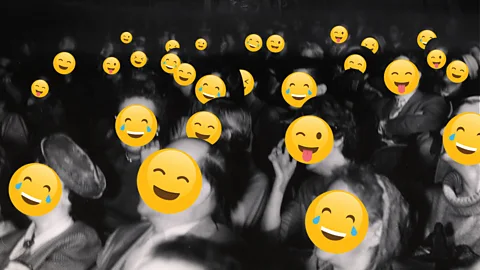The jokes that have made people laugh for thousands of years
 Getty Images
Getty ImagesThe phrase "the old ones are the best ones" might not always be true. But some of the oldest jokes in history are still in use today. What makes a good joke? It’s worth going back a few thousand years to find out.
After months spent poring over medieval texts for her PhD, Martha Bayless made a surprising discovery. She was looking at some of the earliest jokes written in Latin by Catholic scholars (some in excess of 1,000 years old). Few had ever been translated into English before, yet many were still funny – and some even made her laugh out loud.
Shortly after, while waiting for her train, Bayless was reading a copy of Truly Tasteless Jokes 3 – a popular joke anthology from 1983. She was surprised to find, almost word for word, a joke that she had been transcribing just a day earlier.
The joke lives up to the "truly tasteless" promise of the book. This is how it starts in its 1,000-year-old format: Two men were walking along a road talking of this and that. "What do you think," says one. "Which is more fun, defecating or having sex">window._taboola = window._taboola || []; _taboola.push({ mode: 'alternating-thumbnails-a', container: 'taboola-below-article', placement: 'Below Article', target_type: 'mix' });
